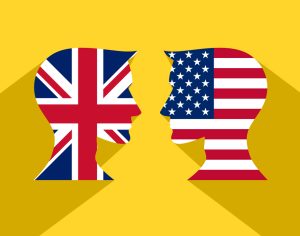Our trading relationship with the US may be thawing, but UK firms don’t have to wait for a trade deal before doing business there, argues customs expert Arne Mielken.
The US decision to suspend tariffs on UK goods including scotch whisky and cheese has raised hopes of a transatlantic trade deal.
The decision follows our exit from the EU which has been embroiled in a long-running trade row with the US over subsidies to rival aircraft makers Airbus and Boeing. This culminated in the Trump administration slapping a whopping 25% tariff on a range of EU goods.
The UK’s temporary thaw in trading relations with the US, which follows our decision to lift some tariffs imposed by the EU, gives us some breathing space to negotiate a deal.
Should I wait for a trade deal?
But businesses here shouldn’t wait until the UK secures a free trade agreement with America before exporting there. A trade settlement doesn’t guarantee less hassle or even tariff-free trade ‘ far from it.
Even though we have negotiated a trade agreement with the EU, exporting to the bloc can be fraught with challenges. Many businesses struggle with EU red tape, including complex rules of origin, and face hefty financial penalties if they get the paperwork wrong.
You still need to complete complicated customs declarations and provide health certificates if you export certain products. Many firms need the professional services of customs agents and specialists to help them navigate the new trading arrangements with the EU.
Trading on WTO terms
So how much more difficult can it be to trade without any free trade agreement, known to us as trading on World Trade Organisation (WTO) terms? After all, we already do business with several countries on WTO terms including China, India and Saudi Arabia and there’s no reason why we can’t do the same with the US and other countries.
Importing into the USA can be as complicated a process as importing to the EU can be now. The good news is thanks to our steep learning curve getting to grips with EU import requirements, trading with the US doesn’t have to be so overwhelming anymore. Once we figure out how to trade with the EU, the US will be more straightforward.
Being forced to deal with import procedures into the EU means that the numerous elaborate particulars that you will find with US customs processes are much easier to digest than before. But like with the EU, without a good understanding of the process, you may still suffer delays and costs. Trade deal or not, there are some fundamental details that UK exporters need to get right to ensure success in the US.
Top tips to ensure a smooth import process into the US
The single most important suggestion to make is to consider enlisting the services of a licensed customs broker. They have the proper experience and knowledge of US customs to help you overcome border issues, of which there can be many.
For example, where you are the “importer of record” and mentioned on the customs entry, you’d also be legally responsible in the eyes of US Customs and Border Protection (CBP). As responsible party, it’s crucial that you understand the US import processes thoroughly. The high-level items you need to know, for example, are:
- what commercial invoices and packing list should look like to satisfy requirements
- where and how to get a US customs bond for your shipment
- how much duty, tariffs and other fees are applicable and how you can pay them
- how your packages, pallets, boxes etc must be labelled and treated
- if you need a specific license, permit or certification (risk an outright rejection without them)
- if an import control on the volume of your commodity is in place, known as a quota
- essential nitty-gritty to help your broker make a successful entry into the US e-customs clearance system ACE and complete the necessary CBP forms, such as the HTS code, the customs value and the country of origin to apply
To find out more, click here to get access to a handy guide on US import procedures.
With the excitement of large, new export markets for your products, you shouldn’t underestimate the high number of requirements that importers have under US customs law. Even with the best broker in the world, providing them with incomplete or incorrect information may lead to delays and expose you to the risk of non-compliance with US importing regulations and laws.
If things go wrong
Prepare yourself if things do go pear-shaped. Nobody wants to receive an CBP Form 28: Request for Information, or worse, a CBP Form 29: Notice of Action. But with awareness and preparation, and with the right expert support, you can successfully appeal penalties and liquidated damage claims, even if you are exposed to them.
Reaching a settlement with the US may make things easier for some UK exporters, but free trade agreements aren’t a panacea as our experience with Europe has demonstrated.
If you do your homework and have the right supply chain and support in place, however, you can navigate the complexities of global commerce without one and still trade profitably. And once you have mastered the intricacies of trading on WTO terms, the world is your oyster.
“
Share via:







































